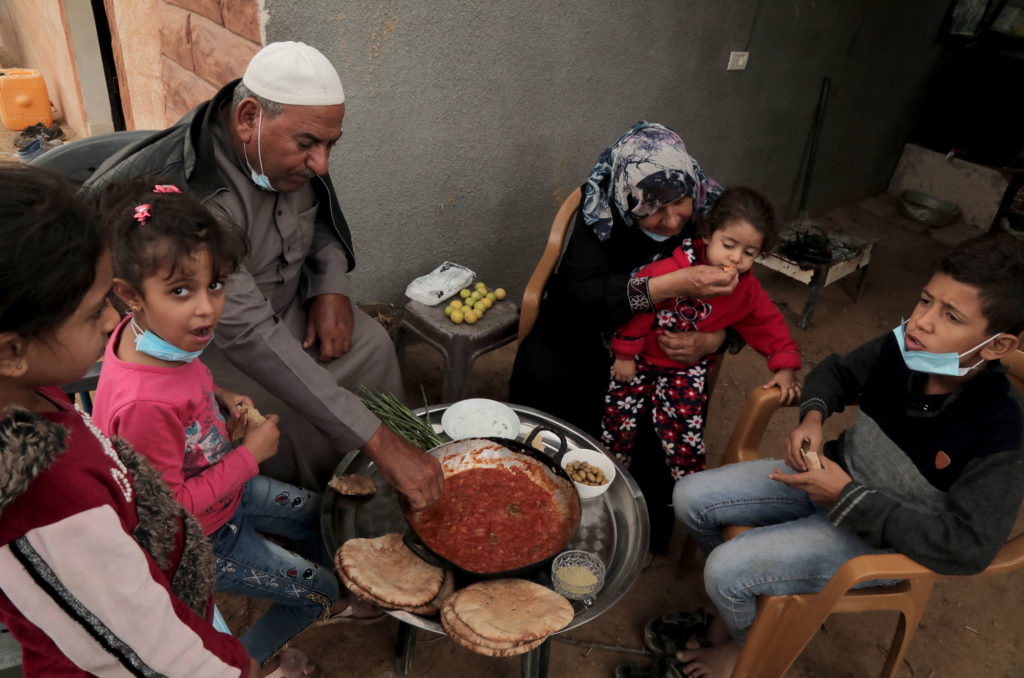Mar, 2021
Promoting food security in Gaza
Qusay’s greenhouse is thriving
Qusay, 41, lives in the Satar Al Gharbi neighborhood of Khan Younis, in southern Gaza. He is the primary breadwinner for his family of six. Supporting his family became difficult when he developed serious health problems.
“I had a kidney transplant two years ago,” Qusay says. “My wife donated one of her kidneys to me.” Every month he goes back to the hospital for follow-up treatment. His healthcare expenses and the associated transportation costs add up.
With generous funding from the Zakat Foundation of America, Anera built a family greenhouse for Qusay and his family to own and operate — providing the family with a source of income.
Qusay and his wife have to avoid heavy lifting and excessive sunlight, because of Qusay’s surgery. These restrictions bring additional challenges to owning a greenhouse. Yet, with the help of his sisters and the neighbors who come by to help the family with physical labor, the couple has found a way to make it thrive.
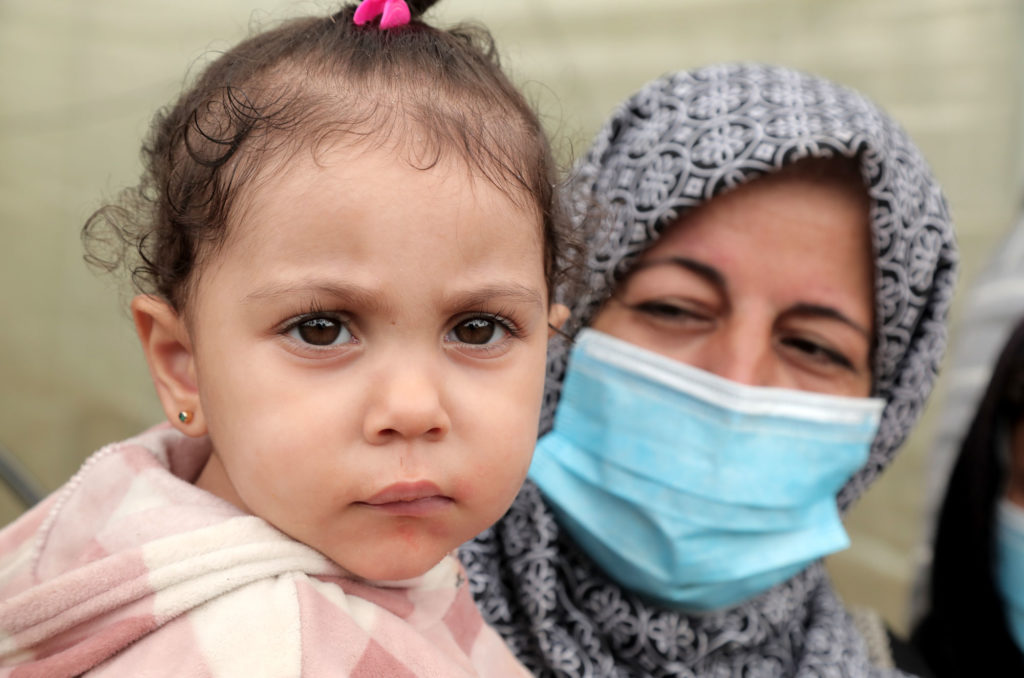



“This project has become our livelihood.”
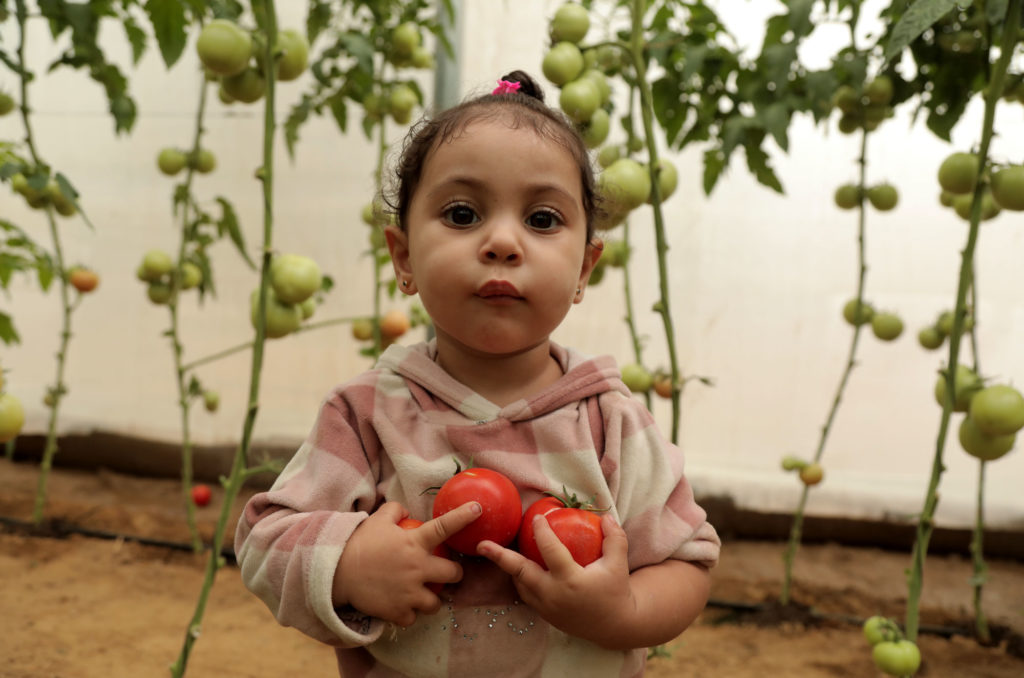

“I have succeeded in growing tomatoes,” he says. “I learned how to apply organic fertilizer. And how to plant and water the crops, despite the coronavirus that has affected everything.”
He says sales are down due to the pandemic’s impact on the economy but he hopes the family’s revenue will increase with the slow return to normal.
“This project has become our livelihood. It has helped me to pay for my treatment and support my family.”
Halima cooks tomatoes fresh from her greenhouse
Halima lives in a remote seaside village in the Khan Younis Governorate, a 40-minute drive from Gaza City. Halima is already busy preparing her shakshuka, a savory dish of eggs, tomatoes and peppers.
Many of the vegetables she is cooking come straight from her greenhouse that Anera was able to build for Halima and her family thanks to the generous support of the Zakat Foundation of America.
Halima says,
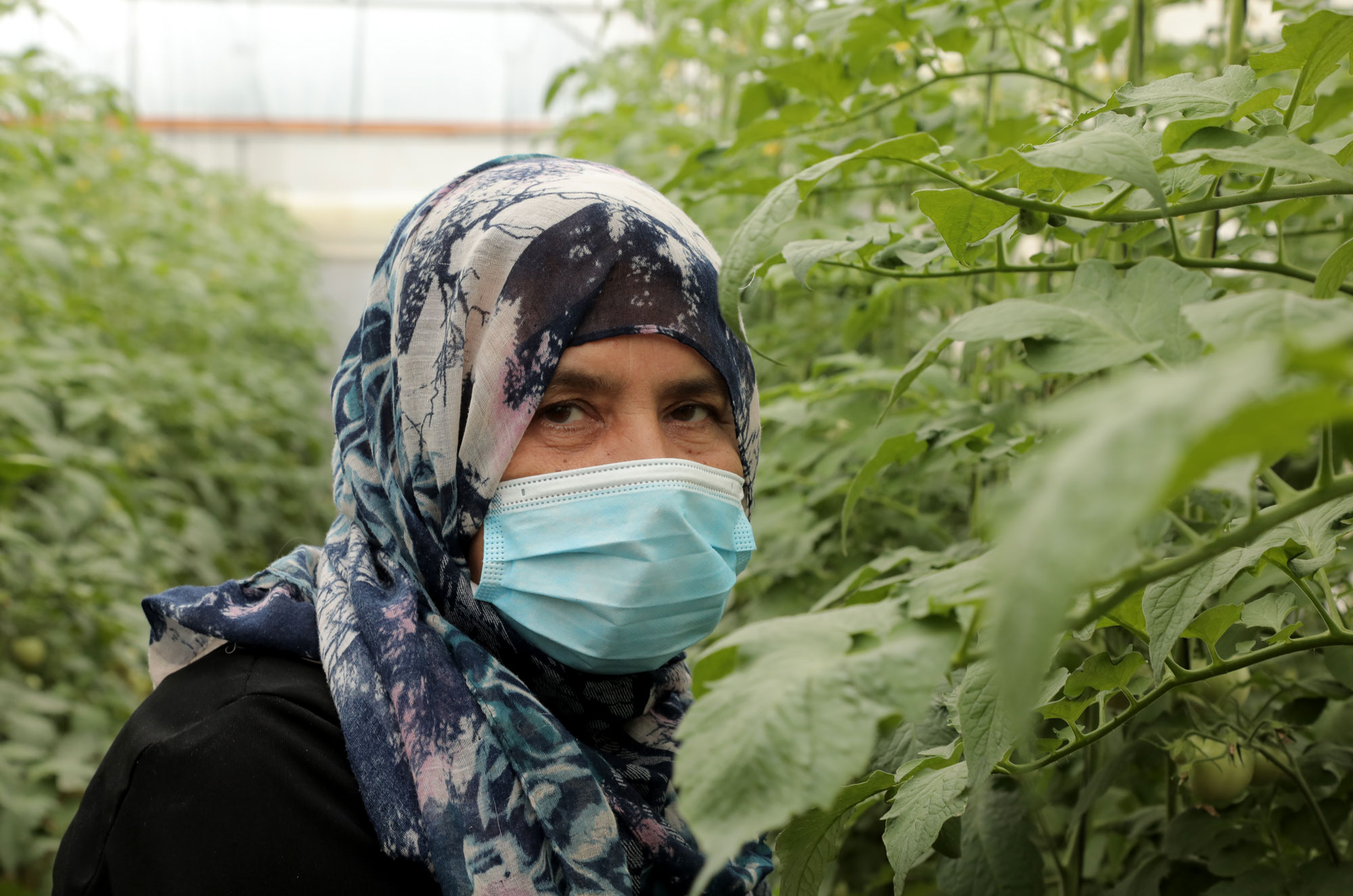



“The support we’ve received through this project has been a blessing. It’s helped us to survive these hard days.”
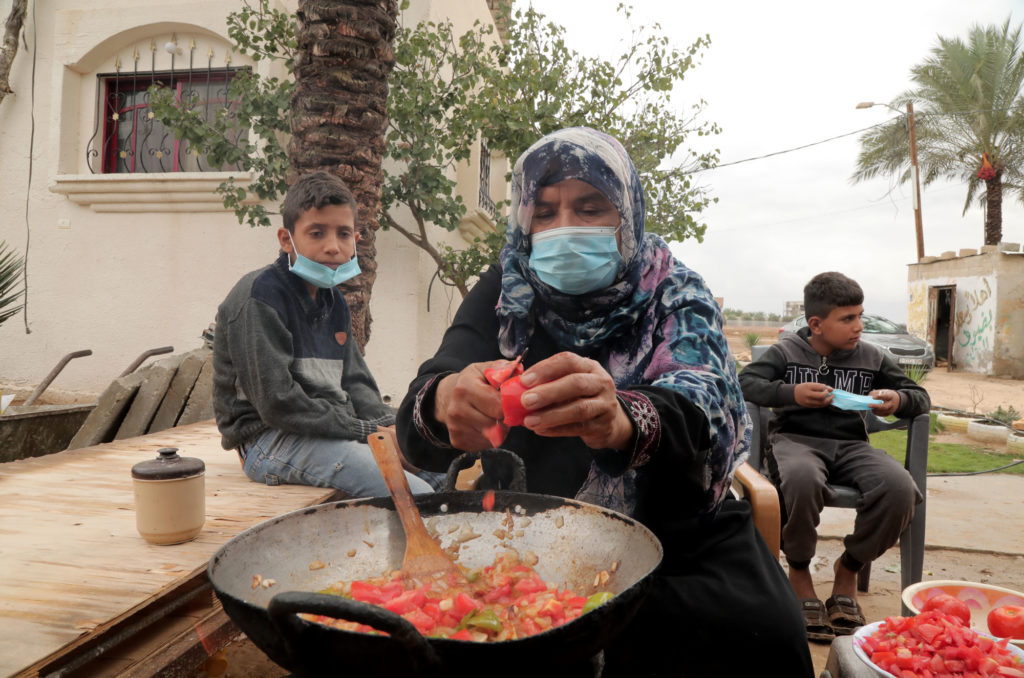

Halima and her husband and sons have worked hard to make their greenhouse successful.
“We start working on it first thing in the morning, trimming the trees and cleaning up the place,” she says.
They started planting seedlings in early November. With Anera’s technical guidance, the family has been following best practices in agriculture by using compost as fertilizer, ensuring good ventilation throughout the greenhouse, and keeping the soil clear of weeds.
Halima says that their greenhouse has provided income and food for her whole family. And they can trade vegetables from the greenhouse for other things they need.


“This project is our means of survival," she says.
